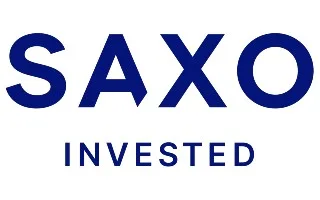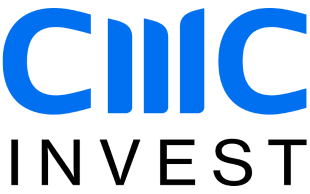$106.51
Bunge Limited is a farm products business with stocks listed in the US. Bunge shares (BG) are listed on the NYSE and all prices are listed in US Dollars. Its last market close was US$106.51 – an increase of 2.64% over the previous week. Here's how to invest if you're based in Australia.
How to buy shares in Bunge
- Compare share trading platforms. To buy shares in a company listed in the US from Australia you'll need to find a trading platform that offers access to US stock markets. Look for a platform with low brokerage and foreign exchange fees.
- Open and fund your brokerage account. Complete an application with your personal and financial details, which will typically include your ID and tax file number. Fund your account with a bank transfer, credit card or debit card.
- Search for Bunge. Find the share by name or ticker symbol: BG. Research its history to confirm it's a solid investment that matches your financial goals.
- Purchase now or later. Buy today with a market order or use a limit order to delay your purchase until Bunge reaches your desired price. To spread out your risk, look into dollar-cost averaging, which smooths out buying using consistent intervals and amounts.
- Decide on how many to buy. At last close price of US$105.42, weigh your budget against a diversified portfolio that can minimise risk through the market's ups and downs. You may be able to buy a fractional share of Bunge, depending on your broker.
- Check in on your investment. Congratulations, you own a part of Bunge. Optimise your portfolio by tracking how your stock — and even the business — performs with an eye on the long term. You may be eligible for dividends and shareholder voting rights.
Our top pick for
US stocks

Our top pick for
Best for beginner

Our top pick for
Dividend investing

Bunge stock price (NYSE:BG)
Use our graph to track the performance of BG stocks over time.Bunge shares at a glance
| 52-week range | US$85.4628 - US$114.3244 |
|---|---|
| 50-day moving average | US$95.5554 |
| 200-day moving average | US$102.6856 |
| Target price | US$114.36 |
| PE ratio | 7.1231 |
| Dividend yield | US$2.613 (2.5%) |
| Earnings per share (TTM) | US$14.87 |
Use the fields above to explore the returns from a historical investment. Please refer to the charts further up this page to see performance over 5 years, or other periods. Past performance doesn't indicate future results. Capital is at risk.
Bunge price performance over time
Historical closes compared with the last close of $106.51
| 1 week (2024-04-12) | 2.64% |
|---|---|
| 1 month (2024-03-19) | 8.95% |
| 3 months (2024-01-19) | 14.92% |
| 6 months (2023-10-19) | 2.76% |
| 1 year (2023-04-19) | 10.09% |
|---|---|
| 2 years (2022-04-19) | -13.58% |
| 3 years (2021-04-19) | 28.05% |
| 5 years (2019-04-18) | 108.31% |
Compare trading platforms to buy Bunge shares
Is it a good time to buy Bunge stock?
The technical analysis gauge below displays real-time ratings for the timeframes you select. However, this is not a recommendation. It represents a technical analysis based on the most popular technical indicators: Moving Averages, Oscillators and Pivots. Finder might not concur and takes no responsibility.
Is Bunge under- or over-valued?
Valuing Bunge stock is incredibly difficult, and any metric has to be viewed as part of a bigger picture of Bunge's overall performance. However, analysts commonly use some key metrics to help gauge the value of a stock.
Bunge's P/E ratio
Bunge's current share price divided by its per-share earnings (EPS) over a 12-month period gives a "trailing price/earnings ratio" of roughly 7x. In other words, Bunge shares trade at around 7x recent earnings.
That's relatively low compared to, say, the trailing 12-month P/E ratio for the NASDAQ 100 at the end of 2019 (27.29). The low P/E ratio could mean that investors are pessimistic about the outlook for the shares or simply that they're under-valued.
Bunge's PEG ratio
Bunge's "price/earnings-to-growth ratio" can be calculated by dividing its P/E ratio by its growth – to give 1.7053. A low ratio can be interpreted as meaning the shares offer better value, while a higher ratio can be interpreted as meaning the shares offer worse value.
The PEG ratio provides a broader view than just the P/E ratio, as it gives more insight into Bunge's future profitability. By accounting for growth, it could also help you if you're comparing the share prices of multiple high-growth companies.
Bunge's EBITDA
Bunge's EBITDA (earnings before interest, taxes, depreciation and amortisation) is US$3.7 billion (£3 billion).
The EBITDA is a measure of a Bunge's overall financial performance and is widely used to measure stock profitability.
Bunge share price volatility
Over the last 12 months, Bunge's shares have ranged in value from as little as US$85.4628 up to US$114.3244. A popular way to gauge a stock's volatility is its "beta".
Beta measures a share's volatility in relation to the market. The market (NYSE average) beta is 1, while Bunge's is 0.651. This would suggest that Bunge's shares are less volatile than average (for this exchange).
Bunge financials
| Revenue TTM | US$59.5 billion |
|---|---|
| Operating margin TTM | 5.79% |
| Gross profit TTM | US$3.9 billion |
| Return on assets TTM | 8.19% |
| Return on equity TTM | 21.47% |
| Profit margin | 3.77% |
| Book value | 74.67 |
| Market capitalisation | US$14.9 billion |
TTM: trailing 12 months
Bunge share dividends
Dividend payout ratio: 19.11% of net profits
Recently Bunge has paid out, on average, around 19.11% of net profits as dividends. That has enabled analysts to estimate a "forward annual dividend yield" of 2.5% of the current stock value. This means that over a year, based on recent payouts (which are sadly no guarantee of future payouts), Bunge shareholders could enjoy a 2.5% return on their shares, in the form of dividend payments. In Bunge's case, that would currently equate to about $2.613 per share.
While Bunge's payout ratio might seem low, this can signify that Bunge is investing more in its future growth.
Bunge's most recent dividend payout was on 29 February 2024. The latest dividend was paid out to all shareholders who bought their shares by 14 February 2024 (the "ex-dividend date").
Bunge's environmental, social and governance track record
Environmental, social and governance (known as ESG) criteria are a set of three factors used to measure the sustainability and social impact of companies like Bunge.
When it comes to ESG scores, lower is better, and lower scores are generally associated with lower risk for would-be investors.
Bunge's total ESG risk score
Total ESG risk: 32.85
Socially conscious investors use ESG scores to screen how an investment aligns with their worldview, and Bunge's overall score of 32.85 (as at 12/31/2018) is pretty weak – landing it in it in the 72nd percentile of companies rated in the same sector.
ESG scores are increasingly used to estimate the level of risk a company like Bunge is exposed to within the areas of "environmental" (carbon footprint, resource use etc.), "social" (health and safety, human rights etc.), and "governance" (anti-corruption, tax transparency etc.).
Bunge's environmental score
Environmental score: 10.68/100
Bunge's social score
Social score: 13.14/100
Bunge's governance score
Governance score: 4.03/100
Bunge's controversy score
Controversy score: 3/5
ESG scores also evaluate any incidences of controversy that a company has been involved in. Bunge scored a 3 out of 5 for controversy – a middle-of-the-table result reflecting that Bunge hasn't always managed to keep its nose clean.
Environmental, social, and governance (ESG) summary
Bunge Limited was last rated for ESG on: 2019-01-01.
| Total ESG score | 32.85 |
|---|---|
| Total ESG percentile | 71.88 |
| Environmental score | 10.68 |
| Social score | 13.14 |
| Governance score | 4.03 |
| Level of controversy | 3 |
Bunge overview
Bunge Global SA operates as an agribusiness and food company worldwide. It operates through four segments: Agribusiness, Refined and Specialty Oils, Milling, and Sugar and Bioenergy. The Agribusiness segment purchases, stores, transports, processes, and sells agricultural commodities and commodity products, including oilseeds primarily soybeans, rapeseed, canola, and sunflower seeds, as well as grains comprising wheat and corn; and processes oilseeds into vegetable oils and protein meals. This segment offers its products for animal feed manufacturers, livestock producers, wheat and corn millers, and other oilseed processors, as well as third-party edible oil processing and biofuel companies for biofuel production applications. The Refined and Specialty Oils segment sells packaged and bulk oils and fats that comprise cooking oils, shortenings, margarines, mayonnaise, renewable diesel feedstocks, and other products for baked goods companies, snack food producers, confectioners, restaurant chains, foodservice operators, infant nutrition companies, and other food manufacturers, as well as grocery chains, wholesalers, distributors, and other retailers. This segment also refines and fractionates palm oil, palm kernel oil, coconut oil, and shea butter, and olive oil; and produces specialty ingredients derived from vegetable oils, such as lecithin. The Milling segment provides wheat flours and bakery mixes; corn milling products that comprise dry-milled corn meals and flours, wet-milled masa and flours, and flaking and brewer's grits, as well as soy-fortified corn meal, corn-soy blends, and other products; whole grain and fiber ingredients; die-cut pellets; and non-GMO products. The Sugar and Bioenergy segment produces sugar and ethanol; and generates electricity from burning sugarcane bagasse. Bunge Global SA was founded in 1818 and is headquartered in Chesterfield, Missouri.
Stocks similar to Bunge
Bunge in the news

Bunge Global (BG) & Chevron to Build New Facility in Destrehan

Bunge Chevron Ag Renewables to Build New Oilseed Processing Plant in Destrehan, Louisiana

The Return Trends At Bunge Global (NYSE:BG) Look Promising
Frequently asked questions
More guides on Finder
-
How to invest in the Tasmea Limited IPO
Everything we know about the Tasmea Limited IPO, plus information on how to buy in.
-
How to buy Blinklab shares
Steps to owning and managing Blinklab shares.
-
How to invest in the Maverick Minerals IPO
Everything we know about the Maverick Minerals IPO, plus information on how to buy in.
-
How to buy Far Northern Resources shares
Steps to owning and managing Far Northern Resources shares.
-
What are the best commodity ETFs on the ASX in 2024?
Commodity ETFs can be used to hedge against inflation. Here's what they do, why they should be on your watchlist and how they can help your portfolio.
-
Best performing stocks on the ASX in 2024 (Updated weekly)
Looking for the best performing stocks in Australia? We update this list weekly.
-
How to buy Gol Linhas Aereas Inteligentes SA ADR (GOL) shares in Australia
Steps to owning and managing Gol Linhas Aéreas Inteligentes SA shares from Australia.
-
Superhero review: ASX and US share trading app
Trade ASX stocks and ETFs with a flat $2 brokerage fee and a low minimum investment of just $10.
-
The cheapest ETFs on the ASX
These ETFs have the lowest fees on the market, but does that make them the best?
-
Alternatives to CommSec: 7 trading platforms to consider
You've heard of CommSec but how does it stack up to the likes of IG, CMC Invest and other players in the market?
Ask a Question
